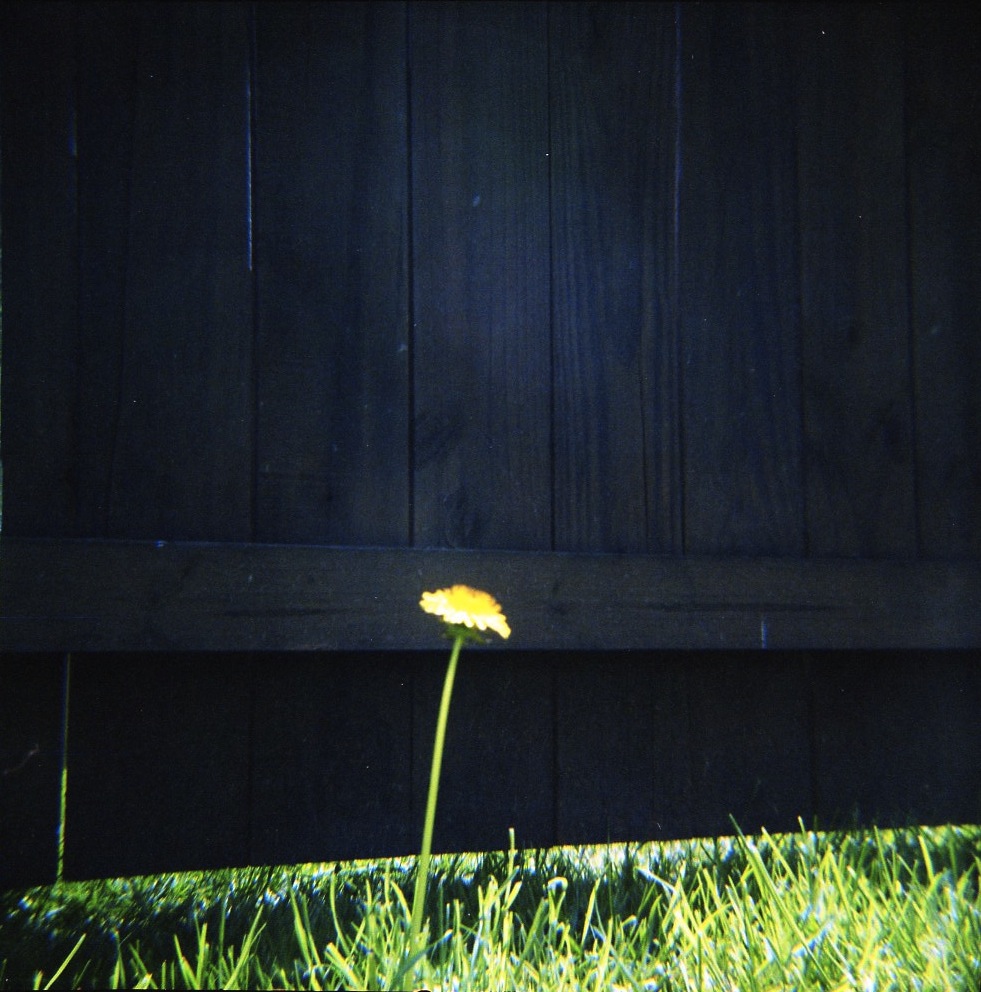Rituals & The Writing Process (In The Word Cellar)
 Wednesday, September 8, 2010 at 11:22PM
Wednesday, September 8, 2010 at 11:22PM  the view from my studio window (Diana F+)
the view from my studio window (Diana F+)
This week's topic comes from Jenn, also known as the Freelance, Unconventional Nun (which is one of the best names ever!), who left a comment back on this post. Her question deals with the writing process and finding techniques and rhythms that work for each us.
Jenn wrote:
Once you let the writing take over and you're flowing, how do you know when to stop or rather how do you separate that life you are creating on paper from the life you are creating around you? I find it hard to write for a few hours and emerge from that space with the ability to stay connected with the people, places and things around me. The feeling scares me and as a result I haven't written much in the last few months. I just start to feel like I'm going crazy and I don't want to.
What an intriguing and powerful question.
I tend to have the opposite problem: The people, places, and things around me often pull me out of my writing. I'm too easily distracted away from the page. That said, I do experience times when the writing draws me in and I'm immersed in the story.
These moments of flow feel magical to me, but I understand how an intense writing experience could be disorienting and even frightening as you come out of that focused state.
I've developed a technique that I use when I need to quiet my mind and work through distractions. It's a little ritual, really. I make sure I have something to drink next to me (usually water, tea, or coffee) so I don't have an excuse to get up for a beverage. I light my favorite candle (Lavender Leaves by Henri Bendel) and commit to writing for an hour. I even make the commitment out loud to myself: "I will write for an hour while this candle burns." Sometimes I set a gentle-sounding alarm (on my cell phone) as a way to keep myself from checking the time obsessively during that hour.
This simple ritual helps me to enter into my writing. Sometimes I struggle for most of that hour, wrestling with words and trying to stay focused. But I don't let myself check Facebook or email or go do the laundry. I keep writing. Sometimes I find the flow before the hour ends, and sometimes I don't. Either way, I've put in an hour of writing, and that feels good. When the hour ends, I can choose whether to keep going or to rest and then do another round.
I wonder if you could create a ritual or technique to help you transition out of an intense writing experience. Maybe you could light a candle when you start writing, and perhaps set a timer to go off ten or fifteen minutes before the time you need to stop writing and re-enter the world around you. By giving yourself that cushion of time, you allow yourself to recalibrate and refocus. During those minutes, you could do some yoga poses or stretches, listen to some favorite music, do a little dance around the room -- something to ground you in the physical "now" away from the page. After this little interlude, you could blow out the candle to symbolize the transition to whatever you need to do next, knowing that the candle and the story are available to you when you can return to them.
This is just one suggestion. Everyone has a different writing process. I'd love to hear other ideas and techniques in the comments. How do you stay focused on your writing? How do you leave the story-world for the physical world around you? Please share.
In The Word Cellar runs on the second and fourth Wednesday of the month. Read other posts in the series here.
The first In The Word Cellar online writing course for creative souls is coming soon! Learn more about Alchemy: The Art & Craft of Writing. (Registration opens later this month!)
 in the word cellar,
in the word cellar,  writing,
writing,  writing life,
writing life,  writing tips
writing tips 




